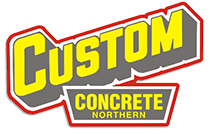Frequently Asked Questions
Sarjeant Propane – Transition Process
How will transitioning from Superior Propane to Sarjeant Propane affect my propane supply?
There will be no changes to your propane supply during the transition. You can continue to pay for your propane using the existing payment methods.
Will there be any changes in the pricing structure or payment methods?
There will be no pricing structure or payment method changes during the transition. You can continue paying for your propane using the existing payment methods and at the same pricing as before.
What steps do I need to take during the transition process?
As a valued customer, you don’t need to take any specific steps during the transition process. You can continue using propane services as usual and rely on Superior Propane for assistance during this heating season until the transition is complete.
Will my propane delivery schedule remain the same during the transition period?
Yes, your propane delivery schedule will remain unchanged throughout the transition period. You can expect the same reliable and timely deliveries you have received.
How will Sarjeant Propane ensure a smooth and seamless transition without disrupting my propane service?
Sarjeant Propane is committed to ensuring a smooth and seamless transition for all customers. We have retained the familiar faces of drivers and service technicians so that you can expect the same level of expertise and service. Additionally, our team will be available to address any concerns or questions during the transition period.
Can I continue using my existing propane equipment and appliances without any modifications or issues?
You can continue using your existing propane equipment and appliances without any modifications or issues. Sarjeant Propane is fully equipped to serve your propane needs and support your equipment, just as Superior Propane did.
Will any changes in the customer service or support channels be available to me?
During the transition, there will be a notable change in customer service. Instead of an automated service, a human will answer your phone calls because we care about your needs here at Sarjeant. You can continue to contact the existing contact numbers: 1-844-770-7263 or 705-776-7263, and you will automatically be redirected to us.
What are the specific dates and details regarding the transition period and when Sarjeant Propane will fully provide my propane service?
Sarjeant Propane will fully support your propane service by the summer of 2024. We will keep you updated on the specific dates and details of the transition through print and email communication, ensuring a smooth and transparent process.
How do I contact Sarjeant Propane with any questions or concerns during the transition?
If you have any questions or concerns during the transition process, you can continue to contact us using the existing contact numbers: 1-844-770-7263 or 705-776-7263 or via email at info@sarjeants.com. Our team will be available to assist you and address any inquiries you may have.
Are there any additional services or benefits that Sarjeant Propane offers that were unavailable with Superior Propane?
While we will continue to provide the same services and benefits you enjoyed with Superior Propane, we are committed to developing new and improved services in the coming months. We will keep you updated through print and email communication, ensuring you have access to any enhanced offerings in the future.
How will Sarjeant Propane address potential issues or concerns arising during the transition from Superior Propane?
Here’s how we will address any potential concerns during the transition period:
- Responsive Customer Support: Our customer support team will readily assist you with any questions, concerns, or issues. You can contact us through the existing contact numbers: 1-844-770-7263 or 705-776-7263. We will ensure prompt and responsive communication to address your needs during the transition.
- Experienced Staff: We have retained the experienced drivers and service technicians who previously served you. They are familiar with your propane system and are well-equipped to handle any technical or operational issues that may arise. You can expect the same level of expertise and professionalism in addressing and resolving any concerns.
- Transparent Communication: We understand the importance of transparent communication during the transition. We will inform you of any changes, updates, or developments through print and email. We aim to ensure you are well-informed and understand the transition process clearly, minimizing potential confusion or uncertainty.
- Swift Resolution: Our team will work diligently to provide swift resolution if there are any issues or concerns. We will prioritize your satisfaction and take proactive steps to address any challenges that may arise. We aim to minimize disruption to your propane service and ensure a seamless transition experience.
- Continuous Improvement:We value your feedback and will actively seek it out during the transition period. This feedback will help us identify areas for improvement and address any recurring concerns. As we strive for continuous improvement, your input will enable us to refine the processes and enhance the overall customer experience.
Rest assured that Sarjeant Propane is committed to ensuring a smooth transition and providing exceptional customer service. Our dedicated team will support you and resolve any issues or concerns promptly and effectively.
Concrete
Making sure that you’re prepared for your concrete delivery is critical to ensuring that you don’t run into added costs and delays. This section to make sure you understand what’s involved in ordering concrete, and what you can do to help make sure your pour goes as smoothly as possible.
WHAT IS CONCRETE?
Concrete is a composition of cement (most commonly Portland cement, defined by ASTM C 150 as a “hydraulic cement” given that it not only hardens with water but forms a water-resistant product after hardening), water, aggregates (typically a coarse aggregate such as crushed rocks of various and certain sizes, combined with a fine aggregate such as sand) and other cementitious materials such as fly ash and slag.
Concrete is formed as a result of a chemical reaction called hydration. The water in the mix reacts with the cement, bonding the other materials together producing a stone-like material capable of creating bridges, skyscrapers, pavements, dams, and more.
How much concrete does your project require?
Concrete is a composition of cement (most commonly Portland cement, defined by ASTM C 150 as a “hydraulic cement” given that it not only hardens with water but forms a water-resistant product after hardening), water, aggregates (typically a coarse aggregate such as crushed rocks of various and certain sizes, combined with a fine aggregate such as sand) and other cementitious materials such as fly ash and slag.
Is the project accessible?
Our trucks are big vehicles, often weighing up to 80,000 lbs when fully loaded. We try not to leave the street and curb unless absolutely necessary and then only with your permission. Carefully plan how the truck can access the job; overhead wires, soft terrain and narrow entrances can present accessibility issues for our trucks.
How do I place an order?
When you call to place an order it is extremely important for you to be able to provide our sales team and dispatchers with as much information as possible. When placing your order, the we will want to know:
- Contact Information – Name/Company, Phone Number(s)
- Desired Date and Time of Delivery
- Delivery Information – Job site address, Nearest Intersection
- Project Description – Sidewalk, garage floor, patio, etc.
- Mix and slump
- Quantity
- Truck Intervals
- Value added Products – Colour, fibre, admixtures, etc.
DO YOU SELL COLOURED CONCRETE?
Yes, we have a selection of colour options available to be added to your product. Click here to download our list of colour options.
Hot & Cold Weather Concrete
Pouring and finishing concrete in extreme weather conditions can have a dramatic effect on setting time, concrete placing, finishing and protection systems that must be followed for proper concrete placement.
What is considered hot weather when pouring concrete?
- High ambient air temperatures (≥ 28°C)
- Low humidity conditions
- High wind speeds
- Solar radiation or heat gain
These conditions can result in the following challenges:
- Increased concrete water demand
- Accelerated concrete slump loss
- Increased rate of setting leading to placing and finishing difficulties
- Increased tendency for plastic shrinkage cracking
- Increased concrete temperature resulting in lower ultimate strength
- Increased potential for thermal cracking
What is considered cold weather?
- When the air temperature is ≤ 5°C
- When there is a probability that the temperature may fall below 5°C within 24 hours of placing the concrete
What can you do to protect concrete from extreme heat?
In cases where protection against rapid evaporation of water from the concrete surface is a concern, consider the use of one or more of the following actions:
- Erect sunshades and windbreaks
- Cover the surface with white polyethylene sheets
- Apply fog spray
Can you slow down or speed up the setting time of concrete?
Yes, chemical admixtures can be added to most mixes. This allows us to adjust for an increase or decrease in setting time.
AGGREGATES
What is the difference between a quarry and a gravel pit?
Gravel pit is where you will find crushed aggregates such as sand and stone deposits. A quarry is where you will find larger deposits such as limestone.
What is considered cold weather?
The suggested use of A-gravel is for low-strength projects, such as backyard patios, or human walkways. For increased strength and durability, washed aggregates produce a better consistency and higher strength.
HVAC
Why is my air conditioner not working?
Before you panic, check the following preventative options to see if you can find an easy solution:
- Have you changed your air filter? If your air filter is plugged it can restrict your cool air flow and possibly freeze your coil if left for an extended period.
- Is this the first time you have used you’re A/C this year? Make sure your A/C is turned on, on your electrical panel and make sure your outdoor panel on/off switch is switched to on.
Why is my furnace not working?
Check your furnace on/off switch and make sure it is switched on.
What is a comprehensive inspection?
A comprehensive inspection is done by a certified Oil Burner Technician to ensure that your equipment is functioning properly and in good shape. This is a requirement under the Technical Standards and Safety Authority (TSSA). Without a valid comprehensive inspection we are not permitted to deliver fuel to a residence or building.
How often should I have a cleaning for my furnace?
We advise cleaning your furnace once a year.
Does a service plan actually benefit me?
Our Service Plans are designed to create peace of mind in the case of a equipment failure. Our 3-tier service plans all offer a cleaning per year to keep your equipment running efficiently.
FUEL
Do the drivers have a VISA or Debit machine on the truck?
Drivers do not carry a point of sale machine. If you would like to pay ahead of your delivery you are able to call the fuel department and give a credit card or debit over the phone.
Do the drivers do bleed and starts?
Drivers are not able to bleed and starts; in order to do this properly we recommend booking an appointment with one of our certified Oil Burner Technicians.
What is the minimum delivery quantity?
The minimum quantity for delivery is 300 litres.



